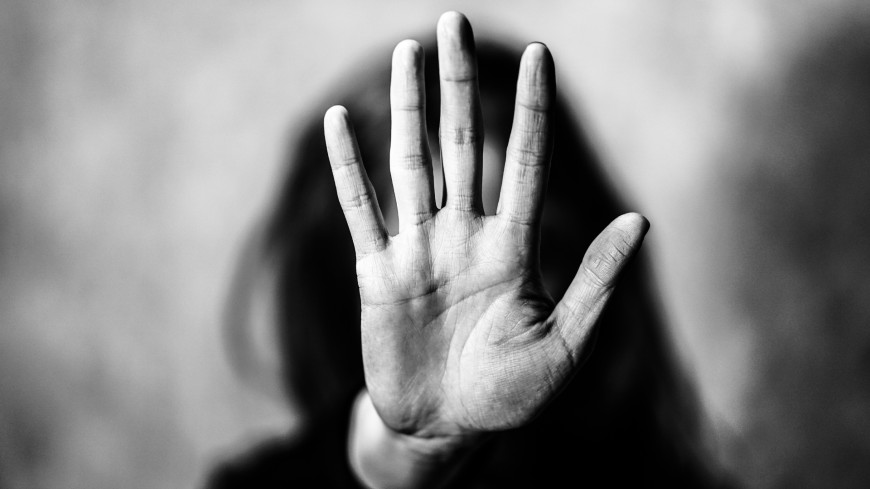Introduction.
Kenya has had a history of violence whenever there are elections, along with human rights violations, with the worst of it all being the 2007/2008 election violence following the disputed results of the presidential election. Many Kenyans actually flee from their city or cosmopolitan residences due to the fear of violence, as most Kenyans especially still vote along tribal lines.
In any dire situation, women and girls and children are the most vulnerable especially due to the patriarchal nature of the society we live in. just like in the 2007/2008 general election violence, it was women who suffered the most. Even the reports by KNCHR after the 2017 general elections found that domestic violence and other forms of violence against women are still commonplace despite the comprehensive fundamental human rights and freedoms enshrined in the bill of rights of the constitution of Kenya 2010.The fact that they are saddled with childcare makes them even more vulnerable since they have to think of more than just themselves when violence occurs. Most women cannot just uproot their lives on the go when there is violence, and as such are usually caught in the chaos that ensue afterwards.
Domestic violence
Incidences of domestic violence are prone especially when there is fear being spread, such as the threat of the election violence. Being cloistered with an abusive partner to shield oneself from political unrest while sharing the same space with an abusive partner is a sure recipe for disaster. Women are beaten, assaulted and some even killed during this tense situations. Not only that, but this might also be the same period where the cultures that practice FGM might subject their women and girls to it as the concentration of the authorities is elsewhere, or those charged with the responsibility to prevent and protect are the perpetrators. many cases of domestic gender-based violence go unreported because it is considered a private matter[1] and women are applauded for perseverance of abuse in Kenyan society.
Electoral related sexual violence
This involves sexual violence acts that are instigated because of a person’s political standing. Electoral related sexual violence is mainly used as a weapon to intimidate, threaten, dehumanize, torture and terrorize members of the community in order to manipulate them to vote in a certain way. It may be used as a punishment if the perpetrator feels that their preferred candidate failed to win an election and it is somehow the victims fault due to their political standing.
ERSV is usually perpetrated by security agents, and other civilian members of the society, especially those close to and known to the victims. It is made even worse that due to the violence or the fear of violence that comes with every election in Kenya is usually accompanied by a breakdown in law and order and other systems meant to protect Kenyan citizens. Security agents such as police officers and general service units (GSU) officers when deployed to certain areas to quell any unrest, have often been accused of perpetrating sexual violence against women and girls in order to instill fear and deter the society from engaging in any form of demonstration, peaceful or violent. Being that they are supposed to be the protectors in society, many victims of such sexual violence fail to report due to fear of stigmatization, threats of death and sometimes their families are harassed and bribed to keep silent. Some victims are even killed to ensure they are silence forever.
The constitution of Kenya in article 38 and article provides for the political rights of Kenyans, including the freedom to exercise the rights enshrined in article 38(2) and 38(3). Article 81 of the constitution of Kenya 2010 further goes on to state that the electoral system should comply with the principles of freedom of politics, gender parity and free and fair elections. When the IEBC is lax about its role, this amounts to a violation of the constitutional rights of the citizen, and they can pursue action in a court of law.
Violence against women in politics
There are three major stakeholders when it comes to elections: the electorate, which is made up of the voters; the politicians who are vying for office and the electoral commission or the body in charge of the elections. Women in politics mainly consist of the women vying for political office, female political party and civil rights organizations representatives.
People vote based on three main factors: religion, tribe and social status. In a patriarchal society like Kenya, the sex of the contender may play a huge part in determining whether they even stand a chance to win. Women form at least 51% of the total Kenyan population[2], but are still greatly vulnerable to the injustices, both social and political that are meted out against them.
Women are largely dismissed in political spaces, with majority of the society telling them they should be content to be in the sidelines, or better yet nowhere at all. They are supposed to be seen, not heard, and even their visibility is measured, and their worth determined by how willing they are to be docile and to submit to societal expectations The introduction of the two thirds gender rule, inasmuch as it has increased the number of active women in politics, is still yet to be fully implemented, and this may be due to the violence perpetrated against women and girls, both in politics and outside of it, which demeans their competency as politicians and standing in society, thus dwarfing their efforts to partake in politics, be it voting, or vying for an electoral position.
Women’s femininity is used against them to bring them down, and also bring down their standing in the eyes of the electorate. It is not uncommon to hear a woman being attacked simply for being a woman rather than being questioned for what she hopes to bring to the table if elected. Gender based violence against women in politics ranges from sexual harassment during campaigns and the actual electoral process, with female aspirants, political party agents and civil society elections monitors being subjected to some form of sexual violence, including their breasts and private areas or their body generally being touched without permission and with malicious intent.[3] Threats of gender based violence are brazenly issued in public, with the male politicians saying things like they would send a horde of bodaboda guys to ‘work’ on a certain female politician, which are just inhumane and meant to degrade and dehumanize the female aspirants.
Gendered hate-speech sexual harassment of women in politics is so commonplace that it is seen as something of the norm in Kenyan politics, with perpetrators never being held accountable except for issuing half-hearted apologies after backlash from the public only for them to go on and do the same thing all over again Such gendered hate-speech, violence or threats of violence have reduced the ability of many women to meaningfully participate in politics, as they are regarded as second-tier candidates with no real potential.
Legal obligation of the state.
Kenya has various human rights obligations both domestic and international to prevent violence and further to protect victims of violence and provide them with remedies and reparations including holding the perpetrators accountable. The rights that are especially violated in case of election violence usually are the right to Equality and freedom from discrimination, the right to human dignity, the right to Freedom and security of the person and political rights.[4]
Women’s rights to human dignity and equality and freedom from discrimination as provided for in articles 28 and 27 respectively of the constitution of Kenya 2010 are continuously undermined due to violence or the threat of violence against women.
The Independent Electoral And Boundaries Commission (IEBC) aside from running the electoral process is also charged with monitoring the process to ensure free and fair elections, paying special interests to vulnerable groups such as people with disability, the elderly, expectant women and other socially disadvantaged people in article 81. This includes ensuring that there is no violence targeted towards any of the stakeholders in the election, which is specifically stipulated in article 81(ii) (e).
Kenya has also ratified various international human rights instruments such as the UN Convention on the Elimination of All Forms of Discrimination against Women (CEDAW), UN International Covenant on Civil and Political Rights (ICCPR), UN Convention against Torture and Other Cruel, Inhuman or Degrading Treatment or Punishment (CAT), UN International Covenant on Economic, Social and Cultural Rights (ICESCR), African Charter on Human and People’s Rights (ACHPR), and the Protocol to the African Charter on Human and People’s Rights on the Rights of Women in Africa (Maputo Protocol).
Article 2(5) and 2(6) of the constitution provide that any international law that has been ratified by Kenya shall form a part of Kenyan law, and should be applied as such. The human rights conventions mentioned above charge Kenya with the responsibility prevent violence against women, protect them from such violence and further to provide remedies for victims of such violence by adoption and application of international best standards of protection of human rights, including creating awareness and sensitization of the public generally on gender based violence and its impacts, establishment of institutions to rescue and provide shelter to the victims of GBV and funding such institutions, ensuring comprehensive and immediate healthcare to victims, and providing free legal services if the victims so wish to engage them.
It is not enough to simply have laws that protect the rights of women on paper, there has to be established stable mechanisms to protect the rights of women, prevent the violation of such rights, and provide the remedies and reparations to women affected by violence of any kind, before, during and after the elections. Institutions such as the National Gender and Equality Commission Should be adequately funded to provide services to survivors of violence. This should be accompanied by establishment of shelters for victims as well as free or affordable legal services.[5] We cannot simply assume, that since there are laws addressing gender based violence, everything is all fine. This will make us the proverbial ostrich who buries his head in the sand to ignore the danger around him. As the apostle Paul said in the Acts of the Apostles, faith without actions is dead. Paper rights are not enough to prevent and stop violence, the state needs to follow the laws up with actions such as implementation.
[1] Alai, Christine: Breaking Cycles of Violence: Gaps in Prevention of and Response to Electoral-Related Sexual Violence in Kenya. Physicians for human rights, December 17th 2019. Available @ https//www.phs.org
[2] Kenya national bureau of statistics
[3] [3] Alai, Christine: Breaking Cycles of Violence: Gaps in Prevention of and Response to Electoral-Related Sexual Violence in Kenya. Physicians for human rights, December 17th 2019. Available @
[4] The Constitution of Kenya 2010
[5] Gender based Violence against women in politics and during elections must be eradicated, warns UN Special Rapporteur on violence against women @http://www.un.org/en/ga/search/view_doc.asp?symbol=A/73/301






